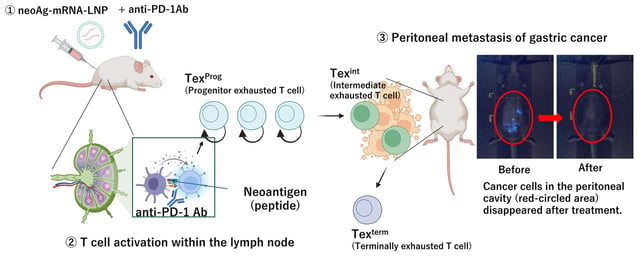Overview
- The lipid nanoparticle formulation encodes three linked neoantigen minigenes derived from the YTN16 mouse gastric cancer line and outperforms dendritic cell vaccines in eliciting tumor-specific T cell responses.
- In therapeutic mouse models, vaccination induced complete regression of subcutaneous tumors and, when combined with anti-PD-1, eradicated lesions in all treated animals.
- The vaccine also reduced established peritoneal metastases and prevented intraperitoneal tumor engraftment in mice, demonstrating efficacy against metastatic dissemination.
- Mechanistic studies show LNP-delivered neoantigen mRNA expands progenitor-exhausted (Texprog) and intermediate exhausted (Texint) T cell populations to sustain checkpoint blockade effects.
- Despite robust preclinical results, the principal hurdle remains accurately predicting in vivo neoantigen targets, and no human trials have yet been initiated for this specific formulation, though industry efforts by Moderna and BioNTech continue.
